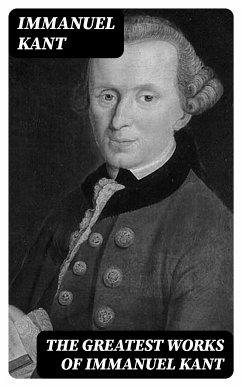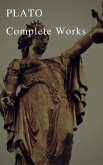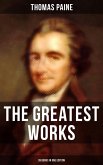In 'The Greatest Works of Immanuel Kant,' readers are presented with a compendium of ideas that have profoundly shaped modern philosophy. This collection includes critical essays such as 'Critique of Pure Reason,' 'Critique of Practical Reason,' and 'Critique of Judgment,' showcasing Kant's groundbreaking inquiry into metaphysics, ethics, and aesthetics. His rigorous analytical style is marked by a meticulous approach to delineating the limits of human understanding and the nature of moral imperatives, set against the backdrop of Enlightenment thought, where reason was lauded as the primary source of authority. Kant's work invites readers on an intellectual journey that challenges preconceived notions of knowledge and morality, insisting that enlightenment is not merely an act of the mind but a moral obligation as well. Immanuel Kant, a central figure in Western philosophy, emerged from the intellectual milieu of 18th-century Prussia, where the intersection of rationalism and empiricism was fervently debated. His personal quest for knowledge, alongside his experiences as a scholar and a professor, led him to address the pressing philosophical questions of his time. Kant's emphasis on autonomy and reason not only reflects his own beliefs but also contributes significantly to the development of critical philosophy, influencing countless theorists across disciplines. Readers seeking a deeper understanding of the foundations of Western thought will find 'The Greatest Works of Immanuel Kant' indispensable. It serves not only as an introduction to Kant's pivotal ideas but also as a comprehensive reference for those wishing to engage with the rich tapestry of philosophical discourse. By immersing oneself in Kant's writings, one can appreciate not just the complexity of his arguments but also their enduring relevance in contemporary discussions on ethics, knowledge, and the human condition.
Dieser Download kann aus rechtlichen Gründen nur mit Rechnungsadresse in A, B, BG, CY, CZ, D, DK, EW, E, FIN, F, GR, H, IRL, I, LT, L, LR, M, NL, PL, P, R, S, SLO, SK ausgeliefert werden.









